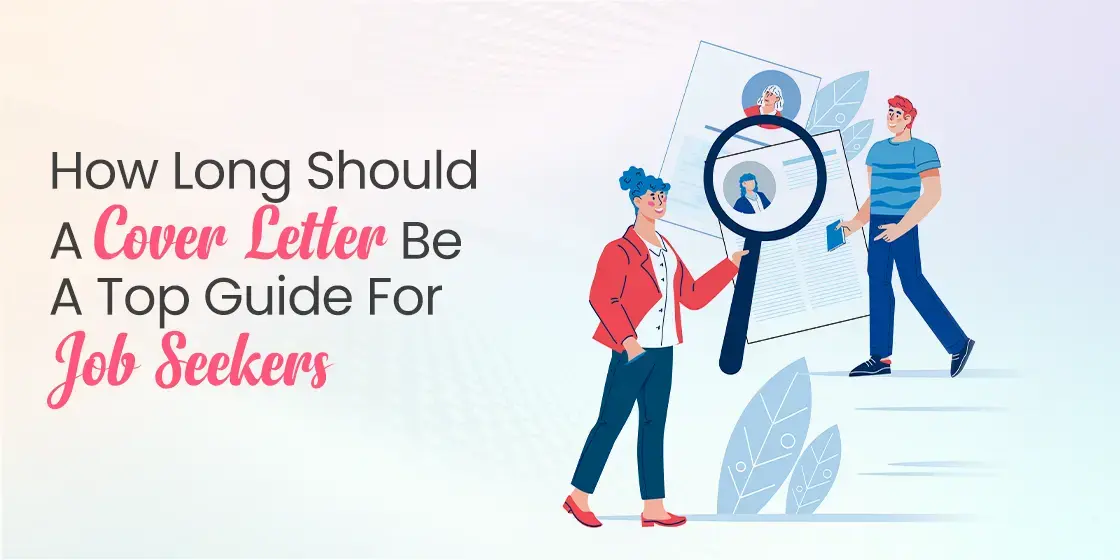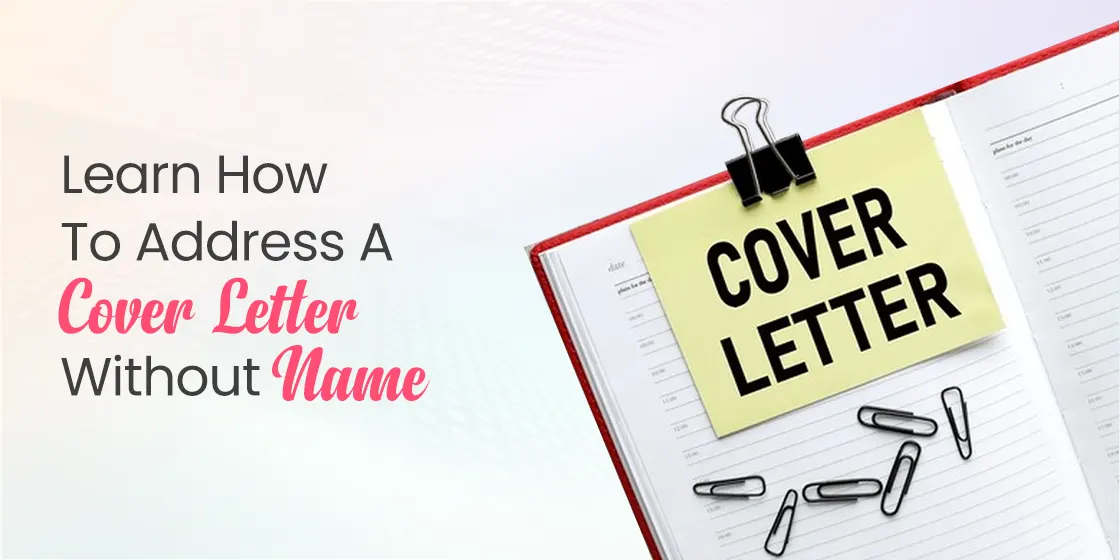Table of Content
Discover How Long Should a Cover Letter Be When Applying for Jobs These Days
In today’s job market, every element of your job application plays a critical role in making a positive first impression. Among these, the cover letter serves as your personalized introduction to a potential employer, offering context that a resume alone cannot convey.
Your cover letter is your opportunity to display your specific interest in a particular role and company, and to highlight the most relevant aspects of your experience in an interesting manner. However, creating an effective cover letter involves more than just great content; knowing how long should a cover letter be is equally important.
In this comprehensive guide, we will explore the crucial question of cover letter length, providing job seekers with the knowledge to create impactful documents like those from a cover letter writing service. We will discuss the fundamental purpose of a cover letter and its significance in the modern job search. We will also dive into some actionable tips for creating a great and impactful cover letter in 2025, to enhance your chances of securing an interview significantly.
Let’s begin.
What is a Cover Letter, and What Role Does It Play in Your Job Search?
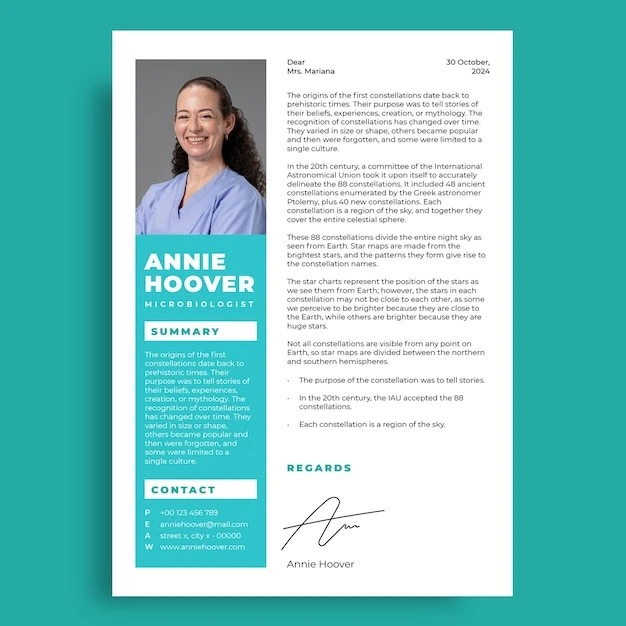
A cover letter is a formal, one-page document that accompanies your resume when you apply for a job. It serves as your initial point of contact with a potential employer, providing a personalized introduction to your application and highlighting your specific interest in the particular role and the company.
Unlike your resume, which offers a brief overview of your skills and experience, the cover letter allows you to connect your qualifications to the specific requirements of the job description. Moreover, it demonstrates your understanding of the company’s mission and values.
The role of the cover letter in your job search is multifaceted. Knowing how to write a cover letter can help you:
- Show professionalism and attention to detail: Taking the time to write a well-crafted and tailored cover letter shows that you are serious about the opportunity and willing to go the extra mile.
- Provide context for your resume: You can use the cover letter to elaborate on specific experiences or skills that are particularly relevant to the job, explaining how they have prepared you for the role.
- Showcase your communication skills: A clear, concise, and well-written cover letter demonstrates your ability to articulate your thoughts effectively, a crucial skill in most professional roles.
- Express your enthusiasm and genuine interest: By referencing the company’s work, mission, or recent achievements, you can show that you have done your research and are genuinely motivated to contribute to their team.
- Bridge the gap: It highlights transferable skills or relevant experiences that make you a strong candidate despite any perceived shortcomings, in essence serving as your personal advocacy statement.
Why Should You Opt for a Cover Letter in Today’s Job Market?
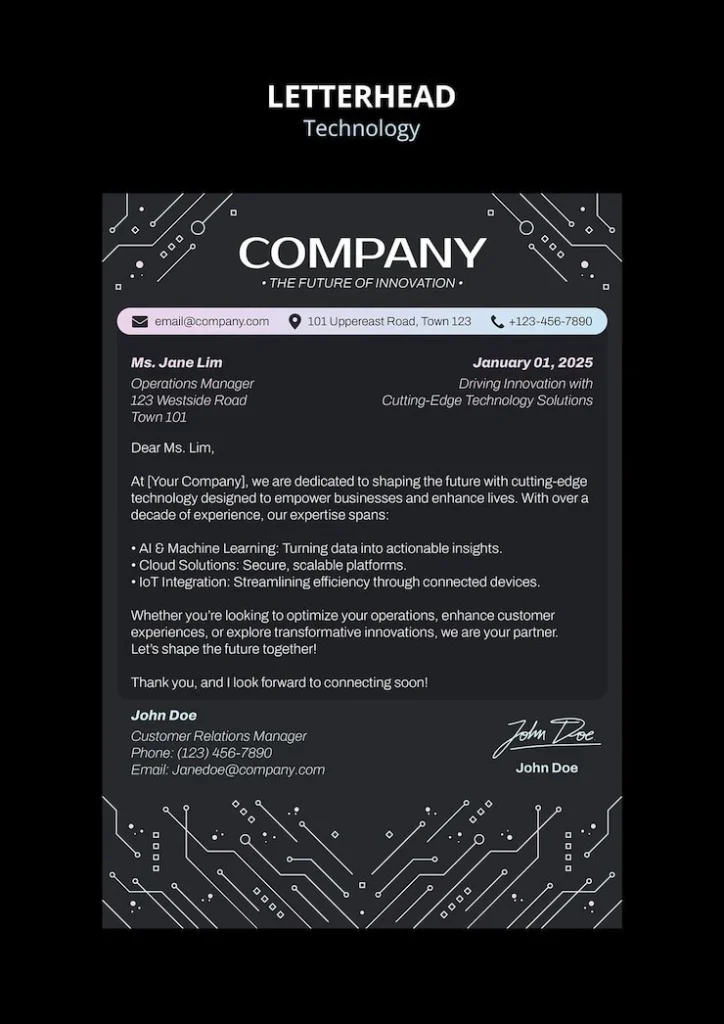
Despite the increasing prevalence of online application platforms and the debate surrounding their necessity, opting for a well-crafted cover letter remains a valuable and often crucial strategy in today’s competitive job market. While some jobs may not explicitly require a cover letter, adding one can significantly enhance your application and provide several key advantages, including:
- Stand out from the competition: Many applicants choose not to submit a cover letter unless specified. By taking the extra step to personalize your application with a compelling cover letter, you demonstrate a higher level of initiative and genuine interest. This extra effort can signal to the hiring manager that you are more invested in the opportunity.
- Tailor your application to the specific requirements of the job description: The cover letter allows for a more detailed and narrative explanation of how your skills and experiences directly align with what the employer is seeking. It allows you to connect the dots between your accomplishments and the future success of the hiring organization.
- Demonstrate your communication skills and professionalism: In many roles, effective written communication is essential. Your cover letter serves as a direct example of your ability to articulate your thoughts clearly, concisely, and professionally. A well-written letter free of grammatical errors and typos reflects your commitment to quality.
- Express your personality and enthusiasm: This personal touch can help you make a more memorable impression on the hiring manager and convey your genuine excitement about the opportunity to contribute to their team. A thoughtful cover letter that sounds like you personally adds a human element that can significantly strengthen your candidacy.
How Long Should a Cover Letter Be, and What Should It Contain?
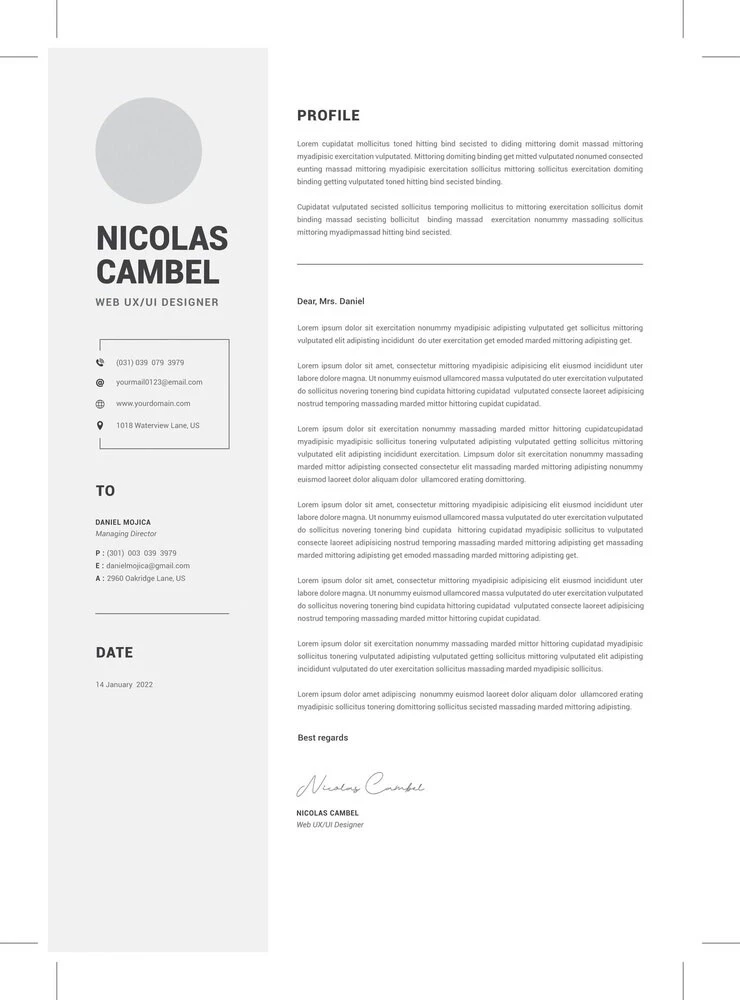
The ideal length of a cover letter is generally onepage. Hiring managers often find themselves flooded with applications, with limited time to review each one thoroughly. A concise and well-written one-page cover letter demonstrates respect for their time while still providing sufficient impact to make a compelling case for your candidacy.
A cover letter that is shorterthanonepage might come across as rushed, lacking in detail, or failing to convey your qualifications and genuine interest adequately. While conciseness is important, you need enough content to effectively highlight your relevant skills and experiences and connect them to the specific requirements of the job.
Conversely, a cover letter that extendsbeyondonepage risks losing the reader’s attention. Hiring managers are unlikely to spend significant time reading lengthy introductory letters, and crucial information might get lost in excessive detail. Therefore, aiming for a single, well-structured page is the optimal strategy, provided you know what to include in a cover letter.
Within this one-page length, a cover letter should typically contain the following key elements:
- Introduction (1 paragraph): Clearly state the specific position you are applying for and where you saw the job advertisement. Express your enthusiasm for the opportunity and briefly mention why you are interested in the company.
- Body Paragraphs (2-3 paragraphs): This is where you highlight your most relevant skills and experiences, directly linking them to the requirements outlined in the job description. Provide specific examples and quantify your achievements whenever possible. Focus on demonstrating how you can contribute to the company’s success in this particular role.
- Conclusion (1 paragraph): Reiterate your interest in the position and the company. Express your eagerness to learn more and discuss your qualifications further in an interview. Thank the hiring manager for their time and consideration.
By sticking to this simple and straightforward structure, you can create a cover letter that is both concise and impactful, capturing the hiring manager’s attention and making a strong case for your eligibility.
Tips for a Great and Impactful Cover Letter in 2025
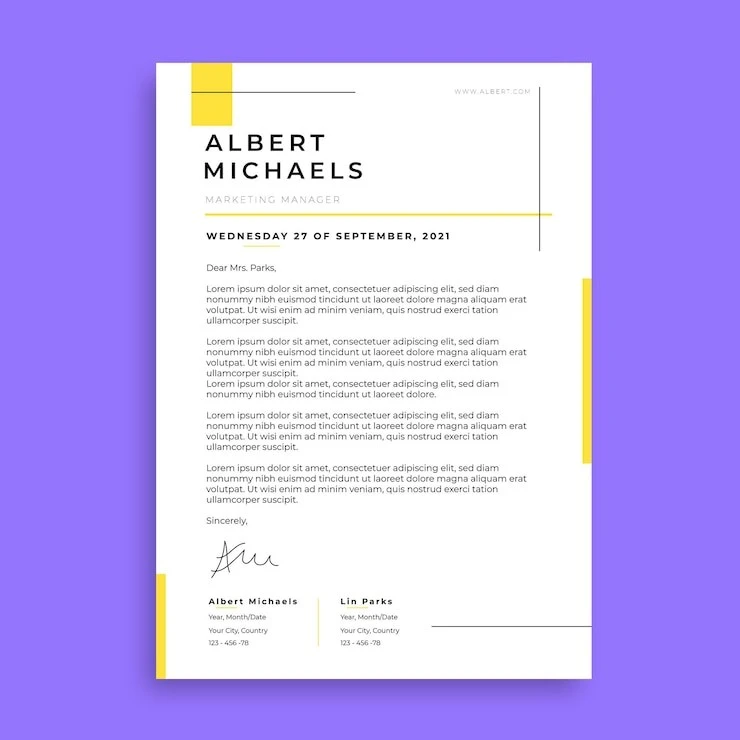
Writing a compelling cover letter in 2025 requires a strategic approach that emphasizes conciseness, relevance, and personalization. Here are some key tips to ensure your cover letter makes a great and impactful impression.
Tip#1: Keep Your Cover Letter Concise Without Omitting Anything Important
Sticking to the one-page limit requires a delicate balance between conciseness and providing sufficient detail. Focus on the most impactful information and avoid unnecessary jargon or lengthy explanations. Prioritize quality over quantity. Use strong action verbs and power words to convey your points effectively.
Before submitting, review your cover letter carefully to remove any sentences that do not directly contribute to the theme of why you are a strong candidate for this specific role. However, you should take care that no crucial details are omitted that show your understanding of the job requirements.
Tip#2: Discuss Only Those Experiences That Are Relevant to the Job Posted
Tailoring your cover letter means focusing solely on the skills and experiences that directly align with the requirements and responsibilities outlined in the job description. Avoid including every detail from your resume. Instead, carefully analyze the job posting and identify the key qualifications and desired attributes.
Then, select the most relevant examples from your background that demonstrate your proficiency in these areas. Quantify your achievements whenever possible to provide concrete evidence of your capabilities, thus showing the hiring manager that you have taken the time to understand their specific needs.
Tip#3: Break the Information into Sections for Easier Reading
A well-structured cover letter is easier to read and understand. Organize your letter into clear and concise paragraphs, each focusing on a specific aspect of your qualifications or your interest in the role. Use clear topic sentences to introduce the main point of each paragraph. Employ white space effectively to break up large blocks of text and improve readability.
Consider using bullet points sparingly within the body paragraphs if you need to highlight a few key skills or achievements concisely. A well-organized cover letter demonstrates your attention to detail and makes it easier for the reader to quickly grasp your key qualifications and why you are a strong fit for the position.
Grab employer’s attention with a professionally written cover letter!
Land Your Dream Job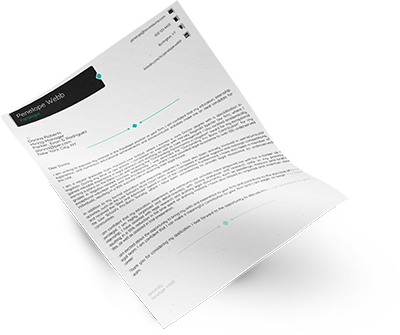
Tip#4: Tailor the Information to Your Experience Level
The content and focus of your cover letter should be tailored to your professional experience level, to match the hiring manager’s expectations for candidates at that stage of their career. For entry-level candidates or recent graduates, emphasize your enthusiasm, relevant coursework, transferable skills, and any internships or volunteer experiences that demonstrate your potential. Focus on what you can do at this time, and your eagerness to learn on the job.
For mid-career professionals, highlight your quantifiable achievements, specific skills, and leadership experiences that directly align with the job requirements. Emphasize the impact you have made in previous roles and how you can bring that expertise to the new organization. For senior-level candidates, focus on your strategic thinking, leadership capabilities, and significant accomplishments that demonstrate your ability to drive results at a higher level.
Tip#5: Ensure Your Cover Letter Is Formatted Correctly and Uniformly
Professional formatting is essential for making a positive first impression. Use a standard, easy-to-read font (e.g., Times New Roman, Arial, Calibri) in a reasonable size (10-12 points). Maintain consistent margins (around one inch on all sides). Ensure your letter is free of any grammatical errors or typos by proofreading it meticulously, ideally multiple times.
If you are submitting your cover letter electronically, save it as a PDF to preserve the formatting. If you are including your contact information within the body of the letter, ensure it is clear and accurate. Maintain a consistent tone and style throughout the document.
FAQs
| Is a 2-page cover letter too long? Unless you are in an industry that requires a lot of statistical data to choose among candidates, and you are quite advanced in your career, a cover letter longer than one page is considered too long. |
| Is a 500-word cover letter considered short or long? An ideal cover letter has between 250-500 words on average. Therefore, a 500-word cover letter is right on the edge of being just the ideal length. |
| What is a common cover letter mistake? Many job seekers fail to personalize their cover letters to the job they are applying for adequately. This results in a lackluster cover letter that doesn’t have the desired impact. |
Conclusion
Creating an effective cover letter in today’s job market is a strategic task that requires careful consideration of its content, and knowledge of how long should a cover letter be. Aiming for a concise, one-page document that highlights your most relevant skills and experiences while demonstrating your genuine interest in the specific role and company is crucial for capturing the attention of hiring managers.
By adhering to the tips outlined in this, you can create a powerful and impactful cover letter today. This personalized introduction, working in concert with your resume, significantly enhances your application and increases your chances of making a strong first impression to land that coveted interview.

Unleash your brand story`s potential with eContentSol – your creative writing companion. We craft narratives that captivate. Ready to elevate your content game? Dive into creativity with us and let`s bring your ideas to life.
